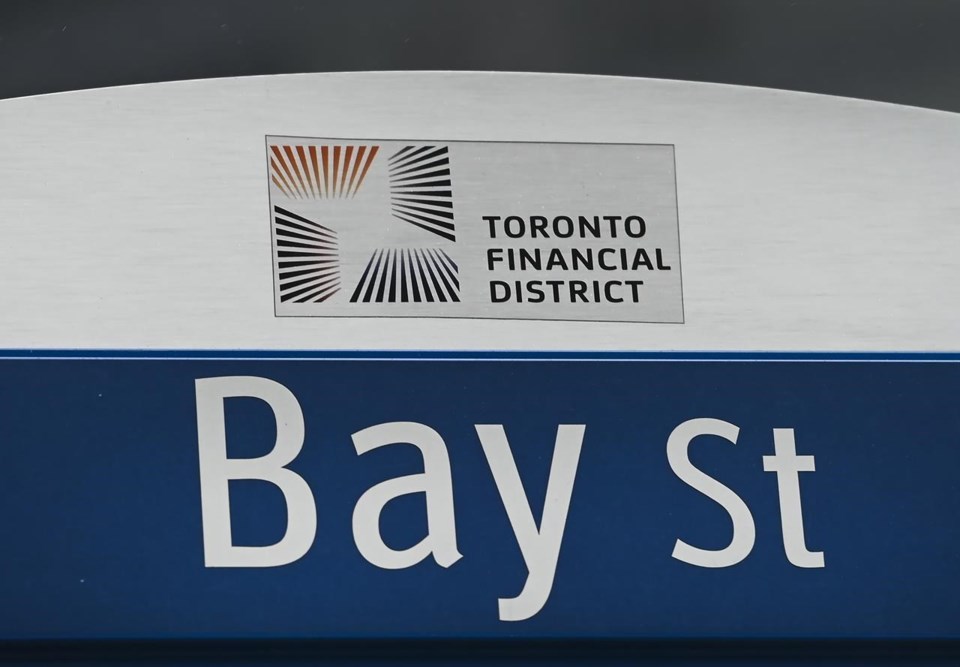TORONTO — Canada's main stock index declined more than 100 points on Tuesday, weighed down by losses in energy and base metal stocks, while U.S. stock markets were also down.
The S&P/TSX composite index was down 113.79 points at 20,948.09.
In New York, the Dow Jones industrial average was down 231.86 points at 37,361.12. The S&P 500 index was down 17.85 points at 4,765.98, while the Nasdaq composite was down 28.41 points at 14,944.35.
A pullback was to be expected after some upward movement late last year, said Steve Locke, chief investment officer for fixed income and multi-asset strategies at Mackenzie Investments.
“We had some significant market rallies in both bonds and equities going into year-end and you had to think that there’d be some potential for markets to check back a little bit and regroup after such a significant rally,” he said.
But the overarching story remains the fight of central banks in both Canada and the U.S. to get inflation under control.
On Tuesday, Statistics Canada released its latest consumer price index report which showed an annual inflation rate of 3.4 per cent in December, up 0.3 percentage points from the previous month. The report showed Canadians continue to face rapidly rising shelter and grocery costs.
It also reinforced the expectation that the Bank of Canada won't be in a rush to cut interest rates, as Locke said the figure was “generally in line with market expectations coming in to the day.”
Locke said the final quarter of last year saw significant pricing toward expected rate cuts by the Bank of Canada. So far, the market hasn’t reacted heavily to the latest inflation data, but he said “the flow of that expectation has ebbed just a little bit here at the beginning of the year.”
“The market's current expectation is that Bank of Canada will cut rates by about 120 basis points before the end of the year from where we sit today, so that's a meaningful underpinning for the economy if we do follow through on that,” he said.
Meanwhile in the U.S., Federal Reserve governor Christopher Waller said Tuesday he's increasingly confident that inflation will continue falling this year back to the two per cent target level but that rate cuts could happen gradually.
Locke said those remarks prompted the stock market to take "half a step back."
Waller said inflation is slowing even as growth and hiring remain solid — a combination that he called “almost as good as it gets.” In December, the Fed’s policymakers collectively forecasted that they would cut their rate three times in 2024.
"We're not quite done with the inflation fight, although … we think that central bank activities have significantly curtailed inflation's ability to rise," said Locke.
"But we're not back to target yet."
The Canadian dollar traded for 74.17 cents US compared with 74.43 cents US on Monday.
The February crude oil contract was down 28 cents at US$72.40 per barrel and the February natural gas contract was down 41 cents at US$2.90 per mmBTU.
The February gold contract was down US$21.40 at US$2,030.20 an ounce and the March copper contract was up nearly three cents at US$3.77 a pound.
—With files from The Associated Press
This report by The Canadian Press was first published Jan. 16, 2024.
Companies in this story: (TSX:GSPTSE, TSX:CADUSD)
Sammy Hudes, The Canadian Press




